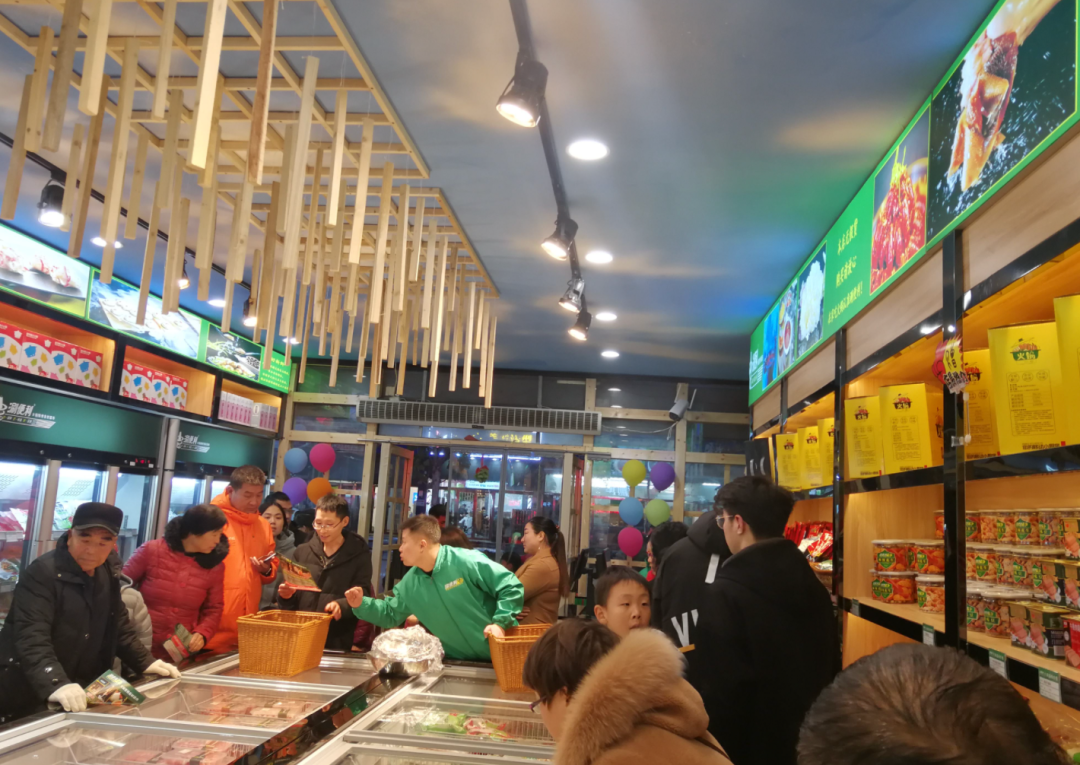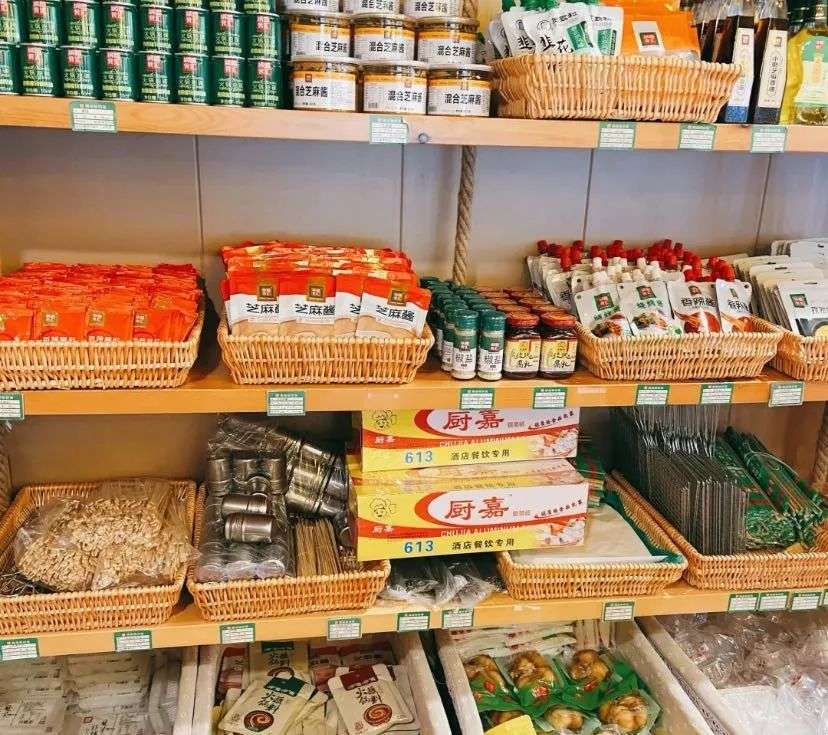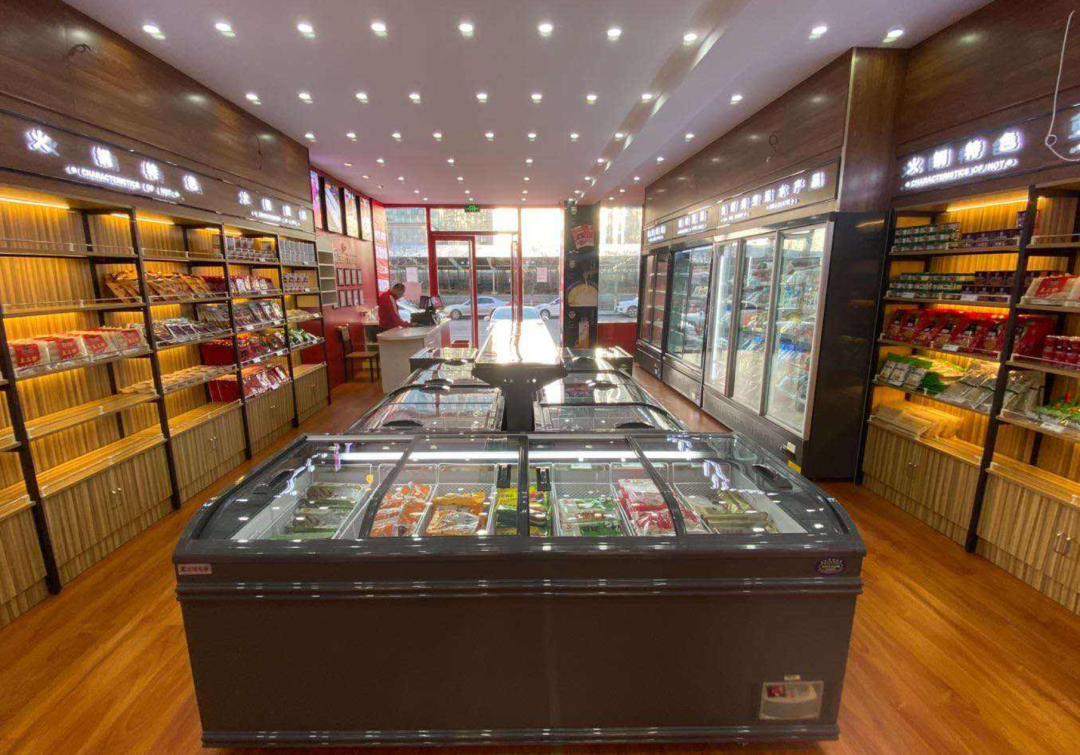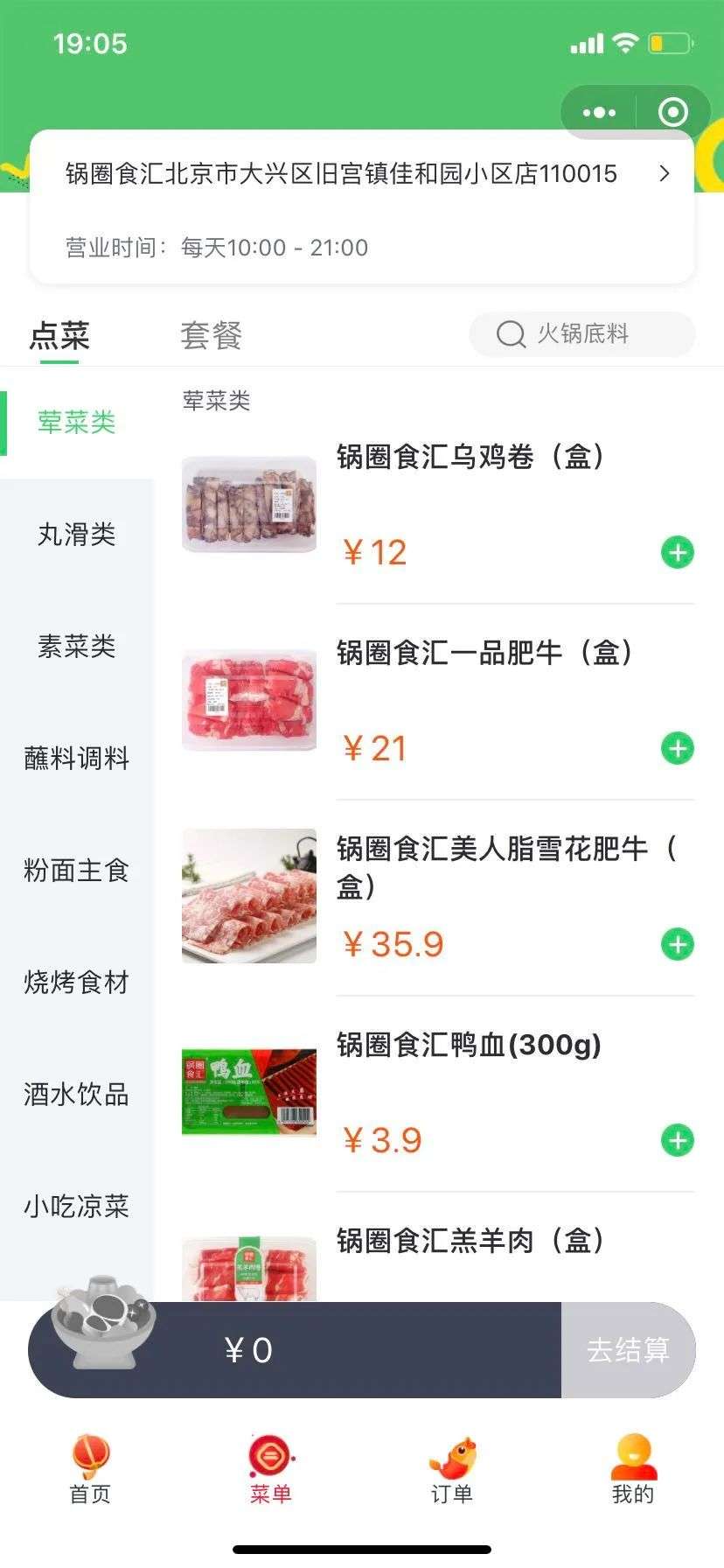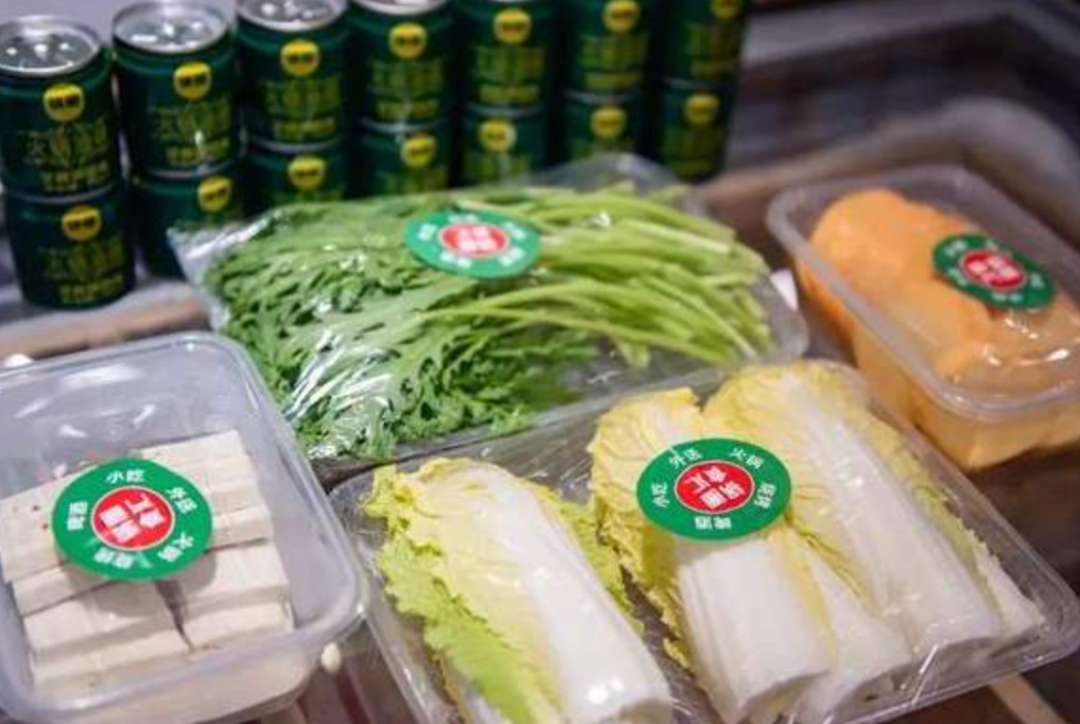Essentially, it is leveraging the supply chain.
Editor’s note: This article is from the micro-channel public number “reveal” (ID: lingshouke) , Author: miles . Original title: “The “trick” of the hot pot food supermarket: old style, old scam? 》
The emperor’s new clothes sometimes just need to take a closer look: Can the category of hot pot ingredients really support a business model alone?
Before the epidemic, there were long queues in the hotpot food supermarket where the boss Lin Xiao (pseudonym) joined, and the number of employees in the store increased from 3 to 4. However, after the epidemic, business suddenly became deserted and deserted. “Income plummeted by nearly half. I didn’t expect the wind to pass so quickly” Lin Xiao said helplessly.
Last year, after a month of decoration and preparations, Lin Xiao’s hotpot food supermarket opened smoothly in Beijing before the epidemic, but the good times did not last long. The business of “Men Ting Ruo Shi” only lasted less than half a year and returned to calm.
The hot pot ingredients market, a piece of red sea “searched” by entrepreneurs, is standing under the spotlight on the retail stage and has become a track where many giants and players are vying to enter.
According to the data, Guoquan Shihui, a company that specializes in hot pot (barbecue) fresh ingredients, has accumulated nearly 900 million yuan in financing in less than a year, and has opened nearly 3,600 stores across the country within three years; and Lazy Bear Hotpot also announced the completion of tens of millions of yuan in financing in May this year.
Not only that, but Sanquan and Anjing, the leaders in the quick-frozen food industry, have also entered the track one after another.
And the multiple “Hema Hot Pot” trademarks that Ali applied for not long ago have also pushed this market to a “climax”. Hema’s move is to sell hot pot set meals based on ingredients in the future. Many supermarkets and front-end warehouses have opened “hot pot” channels one after another, hoping to get a piece of the pie.
The battle for the “family hot pot” market segment is kicking off.
But calm down and think about it. Is there really a market for this direct-to-consumer retailing of hot pot ingredients? Can the gross profit of hot pot ingredients support the cost of franchisees and make thousands of franchisees flock to it?
1Invested 400,000 yuan, and has not yet “backed up”
Through visiting the supermarket of hot pot ingredients, “Spirit Beast” found a store less than 100 square meters full of freezer cabinets and hundreds of SKUs. It mainly provides hot pot, barbecue and daily ingredients and pre-made dishes. There are all kinds of ingredients, dipping ingredients and rinsing products. At the same time, consumers can also place orders on the online platform.
Lin Xiao told “Ling Beast” that the brand does not charge the franchise fee for the store. The cost of opening a store is about 300,000 yuan, but it has invested 400,000 yuan in succession. It has not yet “backed up”, mainly rent and equipment cost of.
In this regard, Lin Xiao further explained that “the rent for half a year is about 120,000 yuan, the cost of decoration and shelf is 70,000 yuan, the cost of freezer and island cabinet is about 50,000 yuan, and the opening store is 80,000 yuan. Around, franchisees need to pay a management fee of 30,000 yuan, and other equipment is scattered with 30,000 yuan”, so rough calculations, the total is about 300,000 yuan.
When asked again when I can When profitable, Lin Xiao said, “If you follow the epidemic’s revenue , 3 years should be about the same, but it’s not optimistic at the moment. This depends on the individual’s operational capabilities.”
Lin Xiao is not the only one who is in “confusion”. Recently, The Beijing News media report also pushed the joining of hot pot ingredients supermarket to the forefront.
In the Beijing News reporter’s investigation, the staff of Guoquan Shihui Beijing Investment Promotion announced that they would not charge franchise fees, and uniformly required the site to be located on the street.For a store of 60 square meters to 80 square meters, the start-up capital of a standard store requires 250,000 to 280,000 yuan. The cost includes the basic decoration of the shop, the purchase of in-store facilities, the first batch of food materials and a deposit of 20,000 yuan.
And the person in charge of investment promotion in the report said that it takes an average of 10 months or 1 year to pay back.
And when “Spirit Beast” asked the franchisee Lin Xiao whether the standard store start-up capital of 250,000 yuan was enough, he immediately shook his head.
Lin Xiao said that in addition to the above-mentioned costs, daily operating costs are not a decimal. Especially in first- and second-tier cities, the daily salary of three employees is nearly 1,000 yuan, and there are hidden costs such as utilities. If calculated at 28% of gross profit, I have to earn nearly 10,000 yuan a day to break even.
But obviously it is very “work hard.” Not only is the hot pot season not long in the northern climate, which is equivalent to only doing business for half a year, but the hot pot food supermarket itself is also an industry with a low overall project gross profit.
A person in charge of supermarket operations revealed to “Ling Beast” that the gross profit of hot pot ingredients in the supermarket is maintained at about 25%.
This figure is far lower than the gross profit of more than 50% of restaurants, and the low gross profit makes the profitability of franchised stores even worse.
2 The hot pot food supermarket does more harm than good
Some people say that the hotpot food supermarket business is to take over the new retail format of community stores, especially after being affected by the “home economy” and “lazy economy” of the epidemic.
On February 24 this year, Jiayu Fund, IDG Capital, and Buluo Venture Capital served as Guoquan FoodForex Investment50 million US dollars; on July 30, Guoquan Shihui announced that it received 60 million in Series C financingDollar. In less than a year, Guoquan Shihui has raised nearly 900 million yuan in total.
On May 28th, Beijing Quantum under ByteDanceYuedong Technology Co., Ltd. new An additional foreign investment-Lanxiong Hotpot, a hot pot Chinese restaurant chain fresh food convenience store, has an investment of tens of millions of yuan and a shareholding ratio of 15%. This also means that Bytedance has become the fourth largest shareholder of Lanxiong Hotpot.
Why is such an over-segmented market concentrated in favor of investors?
An industry investor told “Ling Beast” that the hot pot food supermarket project has certain advantages. First of all, the location is located in the community, very close to users, and the product categories are complete, and the price is 10% cheaper than that of large supermarkets.
More importantly, positioning the segmented scene of “eating hot pot at home” also makes it more professional and therefore has a certain user base.
In addition, the investor predicts that, on the surface, a hot pot food supermarket may not have investment value, but it may be an entry point for a convenience store.
But everything hasTwo-sided, compared with the current overall chaos and difficulty of hot pot ingredients supermarkets, disadvantages It is even more obvious.
Lin Xiao said to “Spirit Beast”,After joining, I found that there are no barriers in the entire link. Strictly speaking, it is not a fresh track, but a frozen product supply chain.
It is reported that the franchise model of Guoquan Shihui and Lailai Xiong are similar. The headquarters only provides frozen products and other products, while the clean dishes are purchased by franchisees. “The loss of frozen products is very tolerable.Easy to control, clean vegetables need to be prepared by themselves, and this part also needs to consume costs.” Lin Xiao said.
Looking at the entire “hot pot ingredients” market competition is not small, not only large-scale supermarkets, community vegetable markets, pre-warehouses, and home business and other online and offline channels are competing.
Another member of the hotpot food supermarket said to “Ling Beast” that at first, the brand was protected by the business district of opening stores, and there was only one within 3 kilometers, but it was later revised to 1.5 kilometers.
However, since there are no barriers in the frozen food supply chain, it is easy to replicate. Therefore, the threshold of “hot pot food supermarket” is very low, and other similar brands can open stores in close proximity.
In addition, it is worth noting that the food retail project also has certain requirements for the franchise store’s own inventory management capabilities.
“Ling Beast” landed on the WeChat applet of Guoquan Shihui Shopping Center and found that the price of the ingredients is relatively close to the people. The price of a box of mutton and beef rolls is around 18 yuan, and the price of vegetarian dishes is around 6 yuan.
However, there are no detailed information such as weight, date of production, and specific place of origin for various meals such as sheep and beef, and the daily sales are not displayed. It can be seen that the online is not currently standardized.
3 The essence, leveraging the supply chain
No matter in the eyes of franchisees or consumers, hot pot ingredients supermarket is a project with a seemingly low threshold. It is nothing more than a collection store for hot pot ingredients to integrate the supply chain. However, the status quo is that the brand side is staking out the land and developing franchisees to scale up and grab the market.
Like the nature of retail, food supermarkets are also a competition of supply chain and efficiency.
Through multiple stores, increase the order volume, thereby leveraging the upstream efficiency revolution, which is not only the resource integration of the food supply chain.
Only when the brand opens stores on a large scale and introduces franchisees, purchases have an advantage, and terminal product pricing is more competitive. This is why the brand does not charge franchise fees and captures more franchisees.
The premise of all this is that the brand should have a strong enough logistics system and management system to support it.
An investor said to “Ling Beast” that the formation of a chain of hot pot ingredients requires that the brand not only have a standardized store system (including products, decoration, personnel, and management systems), but also build a logistics cold chain network and digitalization Supply cloud system, etc., otherwise it will face more franchisees withdrawing and closing stores, which will eventually become cannon fodder.
As for the phenomenon of queuing at stores before, investors said that the impact of the epidemic is a concentrated outbreak of home-made hot pot DIY caused by the boring economy of young people.
However, after the epidemic, the frequency of home hot pot consumption was low, the demand was not high, and the repurchase rate was low. Compared with hot pot restaurant dinners, it still lacks social attributes, and there is a certain gap in taste and experience.
Finally, Lin Xiao told “Ling Beast” that when franchisees choose a franchise brand, the supply chain is the focus of consideration. They must confirm what needs to be purchased by themselves, the way of food distribution, the cycle, etc., if it is sent The way of logistics means that the brand’s supply chain cannot reach this area, and the profit of the franchisee will also be affected.
In fact, Lin Xiao knew in his heart that the store would not be able to return to what it was like during the epidemic in the short term, but he is still full of awe of the market.
Everything has never changed. It is not much different from many models or companies that are branded as franchising, except that this time the category has been replaced with hot pot ingredients, and the industry has been labeled as fresh, family hot pot, and future prospects. In essence, it is still not changing the soup. Medicine, the pursuit of short-term benefits, with equipment and production”Arbitrage” from franchisees in various ways such as products or raw materials, franchise fees. And this old style has repeatedly allowed the industry, capital and even franchisees to rush into it. Although it is an old scam, there are many people who are willing to be fooled.
The emperor’s new clothes sometimes just need to take a closer look: Can the category of hot pot ingredients really support a business model alone?
